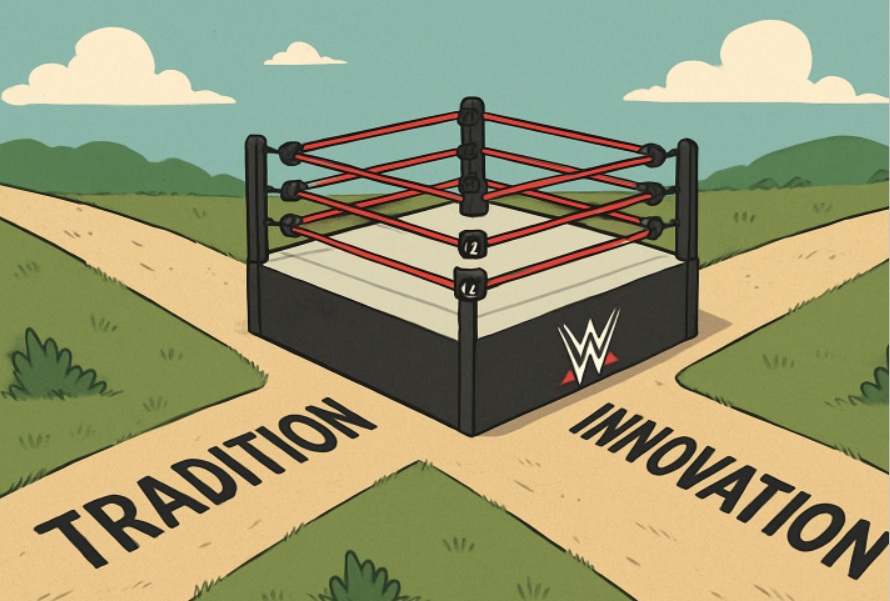Key Takeaways
- Vince McMahon transformed WWE from a small regional wrestling business into a global entertainment powerhouse.
- Rumors regarding his return to a prominent role in WWE have generated significant debate about the company’s future direction.
- WWE’s ongoing evolution is deeply tied to its leadership’s adaptability and understanding of entertainment trends.
- History shows that the comeback of influential industry leaders can often lead to periods of renewed success and creativity.
- Market and fan reactions suggest executive moves can significantly impact WWE’s creative output and business performance.
- Industry analysts recommend monitoring WWE closely as leadership developments unfold.
The Journey: Vince McMahon’s Role in Shaping WWE
Few figures in the entertainment world have had the impact of Vince McMahon. He redefined professional wrestling by transforming WWE into a global spectacle from a fragmented regional circuit. Through innovative decisions, such as launching national pay-per-views and creating mega-events like WrestleMania, McMahon established a legacy of boldness and business savvy that placed WWE at the forefront of sports entertainment.
The transformation of WWE into a household name wasn’t merely about larger venues or television deals. It involved changing how wrestling was presented, blending athleticism with storyline-driven drama that appealed to audiences far beyond traditional fans. McMahon’s instinct for embracing controversy and reinvention made WWE a lasting cultural force.
Speculation Mounts: Could a Return Happen?
In recent months, the wrestling community and business insiders have closely followed speculation about Vince McMahon’s possible return to a more hands-on leadership role. While some see this as a potential trigger for creativity and excitement, others question whether a return to past methods can address the challenges of today’s entertainment landscape. For many, the idea of McMahon retaking the helm conjures up memories of classic storylines and daring business moves—but it also raises concerns about adapting to contemporary viewer expectations.
WWE, now a multimedia conglomerate with international reach, exists in a far different landscape than during McMahon’s earlier reign. With digital streaming, social media, and global markets influencing every decision, a renewed leadership presence could trigger both innovation and controversy. The debate hinges on whether Vince McMahon’s legacy can be successfully adapted to address the demands of a fast-evolving entertainment industry.

Leadership and Innovation: A Track Record of Surprises
Vince McMahon’s hallmark has always been his willingness to take calculated risks. McMahon has consistently sought fresh ways to surprise audiences and outmaneuver competition, from the era-defining Attitude Era that revolutionized wrestling’s tone to the launch of alternate brands and new business models. Industry analysis suggests that strong leadership comebacks have repeatedly generated new waves of creativity and revenue for organizations, particularly when combined with fresh strategies and collaborative innovation.
What’s at Stake for WWE?
As content reigns supreme and authenticity becomes prized, WWE faces the challenge of retaining loyal viewers while attracting new ones in a crowded entertainment world. The return of a visionary like McMahon could alter the company’s creative and operational direction—from shaking up on-screen storytelling and live event production, to redefining how WWE identifies and develops new talent.
Some industry observers believe this could spark another period of energetic growth, reminiscent of past surges in popularity. Others caution that changes must balance nostalgia with innovation to engage an audience now spoiled for content across diverse digital platforms.
Industry Reaction: From Skepticism to Excitement
Unsurprisingly, the broader reaction to these rumors is mixed. Hardcore fans celebrate the possibility of McMahon’s unpredictable energy, remembering how his past tenures often pushed the boundaries of wrestling entertainment. Meanwhile, analysts point to WWE’s recent mainstream and corporate achievements as reasons to proceed carefully with any leadership shakeups. According to Sports Business Journal, history has shown that strategic changes in leadership can provoke shifts in programming, global partnerships, and the diversity of content on offer.
The balance between maintaining established success and forging new creative ground will be crucial. As WWE faces increased competition from rival wrestling promotions and streaming giants, fans, investors, and business strategists scrutinize executive-level decisions.
Case Studies: When Leaders Return
There is no shortage of notable returns in the business and entertainment world that provide inspiration and cautionary tales. Steve Jobs’ celebrated comeback to Apple reshaped the company through innovation and an improved product lineup, demonstrating how a leader’s unique vision can reinvigorate even the most prominent organizations. For WWE, a return for McMahon could either renew its legendary energy or highlight the challenges of recapturing past glory in a contemporary setting. Coverage by Bloomberg further points to the possible industry-shaking consequences of McMahon’s involvement, including speculation about significant sales or shakeups.
Challenges and Opportunities in Today’s Market
WWE now competes on more fronts than ever before. The rise of digital entertainment means wrestling must vie for attention against streaming series, esports, and global sports leagues. A change in direction at the highest levels could encourage WWE to double down on international expansion, digital content, and groundbreaking partnerships in entertainment and technology.
Successfully navigating these waters requires a visionary at the helm and a flexible approach that blends experience with timely reinvention. As sports, technology, and audience expectations collide, WWE’s future will depend on its willingness to evolve without losing the essence that made it world-famous.
The Bigger Picture: What’s Next for WWE?
Whether or not Vince McMahon resumes a central role in WWE’s leadership, the fascination with his legacy and influence is unlikely to fade. His previous leadership set benchmarks for imagination and bold decision-making that continue to shape the company’s identity. As the entertainment industry continues its rapid transformation, all eyes are on WWE—waiting to see if a new era will begin, and how it will take shape amid new challenges and limitless possibilities.
Vince McMahon’s return introduces excitement and uncertainty, as his influence could reshape creative direction, business strategy, and fan engagement. While longtime followers anticipate bold changes, others question the impact on WWE’s evolving vision. Ultimately, his comeback may determine whether the company embraces fresh opportunities or revisits familiar traditions to pursue global dominance.

